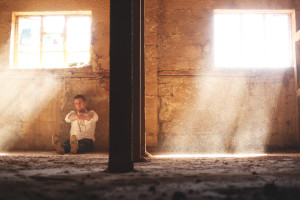Internal Conflicts & Self Esteem : Does being “privileged” impact how we see ourselves and express our emotions?
 Most of my clients come in with some kind of emotional regulation, confidence and/or relationship “issue.” (Why? Well, who doesn’t struggle with these three things at times in their life?) Although these factors are extremely common, I have recently noticed a reoccurring theme with the specific clients who identify themselves as “privileged.” This adds a certain element of complication into the mix that most are not initially aware of.
Most of my clients come in with some kind of emotional regulation, confidence and/or relationship “issue.” (Why? Well, who doesn’t struggle with these three things at times in their life?) Although these factors are extremely common, I have recently noticed a reoccurring theme with the specific clients who identify themselves as “privileged.” This adds a certain element of complication into the mix that most are not initially aware of.
Some mention right away that their childhoods were “good;” that they grew up living a pretty “normal” life. Many of them feel as though they had everything they could have ever wanted and remember being in sports, going on vacations and having a very “privileged” upbringing.They often express there was not “anything traumatic” that happened in their childhoods and insist there is no need to dissect their past simply because, there’s nothing there; i.e. “My parents rarely argued and I got along with my siblings alright.”
As we move off the topic of family for the initial “getting to know you phase” I started to notice the prominent theme that seemed to show up in almost every one of my self-identified “privileged” clients. They appeared confused, maybe even a little embarrassed as we opened up their family and upbringing. “My life really wasn’t… or isn’t that bad.”
It was almost as if these individuals who were seeking my services to help through tough emotions and relationship difficulties, felt ashamed for sitting across from me; a trained therapist who was asking about their past and familial upbringing… but, why?
After building trust and strengthening self-awareness, it became evident to me that in most cases, these “privileged” clients had learned to develop a sense of shame when experiencing normal human emotions. Sometimes it was because they compared themselves to others and felt guilty for having struggles to begin with since their privileged upbringing was not the root cause of any dysfunction.
Because many of these clients had never experienced (what our society generally classifies as) “severe trauma or past related issues” (and actually experienced a “great childhood”), these individuals had learned to dismiss their suffering, while avoiding expressing raw emotions altogether. They felt ungrateful, embarrassed and were genuinely confused as to why they were hurting when (they felt) they had no “reason” to.
This confusion generally results in an internal conflict in which their thoughts, i.e. “stop crying… it could be a lot worse!” and their emotions, i.e. “I’m really depressed,” were never seeming to be on the same page. Responding to this internal conflict generally causes behavioral incongruences, addictions, poor communication, low self esteem and especially relationship conflicts, (actually, the presenting “cause” of why many of my clients were sitting in front of me to begin with).
Because my approach to counseling serves a diverse spectrum of races/genders/sexualities/etc, I help my clients (regardless of their upbringing and perceived experiences/identifiable labels), become aware and accepting of normal human emotions, without invalidating and/or comparing themselves to others. By doing so, as people, we can learn how to understand ourselves and others around us without experiencing the dreaded imbalance that causes conflict between our perceptions/insecurities and our feelings/behaviors. This helps with building a strong self-esteem and genuine connections with others.
By acknowledging, accepting and appreciating your own struggles and emotions, you can feel relieved of carrying the burden of shame every time you experience normal human suffering… even if you happen to be “privileged.” We are all humans with the right to tend to our own innate reactions and emotional processes regardless of our differences.
